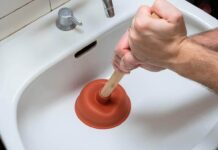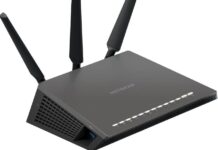Becoming a nurse requires a commitment to excellent patient care and a desire to help people in need. For most nurses, the beginning of their career when they are learning the ropes can be nerve-wracking and full of personal victories and losses that all work to nurture the individual into the professional nurse they will become.
There are certain skills that are necessary for any nurse and while these skills are touched upon in nursing school, time and experience aid in the development of these skills and often lead to opportunities for leadership roles.

Top 7 Skills Needed to be an effective nurse
Communication
The ability to communicate clearly with members of the medical team as well as the patient is a necessary skill for any nurse to have. In the area of patient care, communication can mean the difference between the patient getting the care they need or an error in treatment or medication. Clear communication is something that will come in time for most nurses as they navigate the terrain of their departments. When they become skilled at communicating, they can move on to teaching and mentoring positions so they can show new nurses how to develop these skills.
Confidence
Confidence is important in nursing because the slightest hesitation during an emergency could be detrimental to the patient. This skill is also necessary when working as part of a team as no one wants to be treated by a nurse who is constantly second-guessing themselves. Confidence comes naturally with time and experience, and unfortunately, after some mistakes have been made.
Teamwork
Nurses need to work with different people each day, including colleagues, doctors, social workers, and other stakeholders who have the same goal of excellent patient care. Teamwork means collaborating with these partners by listening to their input, communicating clearly about the patient, and accepting experienced advice. When everyone feels like they have a place on the team, the atmosphere becomes one of collaboration and efficiency. Teamwork can take some time to develop as new colleagues become accustomed to working with one another, but when it is running smoothly, everyone benefits.
Additional education can teach important skills such as teamwork through the curriculum offered by an accredited school such as the University of Indianapolis. With courses such as the accelerated Bachelor of Nursing, nurses can collaborate to learn about cases and find the best solutions for their patients before they enter the field.
Empathy
Empathy can be a difficult skill to master but it is probably the one that will be the most valuable in relationships with patients and their families. Being empathetic means not losing patience with a patient who asks the same question over and over because they are scared, or with family members who may not understand procedures in the healthcare system or how to create the lifestyle changes their family member needs.
Critical thinking
Nurses need to be able to think critically when it comes to patient care and seek out facts before a conclusion can be made about the best course to take. This includes confirming the accuracy of statements made by other team members and verifying other information. Critical thinking is a skill that comes with much time and experience, and unfortunately a mistake here and there. A nurse will learn not to react without double-checking the available information after they have gained experience in caring for patients.
Creative problem solving
Creativity is not always something you can learn, as it flows organically from some people. During the pandemic, creative problem-solving was prevalent in hospitals and clinics as the issue was new and there was no precedent. Putting warm water in a rubber glove and putting it in a patient’s hand to simulate the hand of a loved one is just one example of how nurses think outside the box to give their patients the compassion they deserve.
Professionalism
Professionalism in nursing is a skill that should be practiced by nursing students and brought into their careers. Professionalism encompasses most of the other traits listed, such as listening, critical thinking, empathy, and being adaptable. Professionalism also means being a positive role model for other members of the medical team and creating a positive atmosphere.
Final thoughts
The pandemic really opened the world’s eyes to how valuable nurses are in the medical community and how their roles need to be expanded to provide the best patient care available. Skills such as empathy, communication, and critical thinking are all traits of experienced nurses, and they are in a perfect position to pass these along to new nurses entering the field.










































